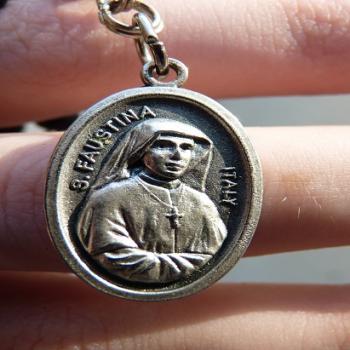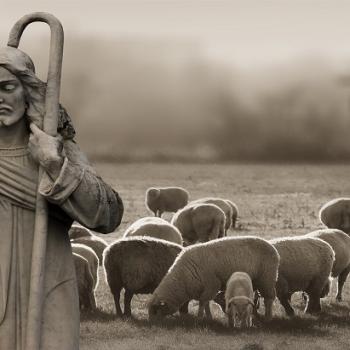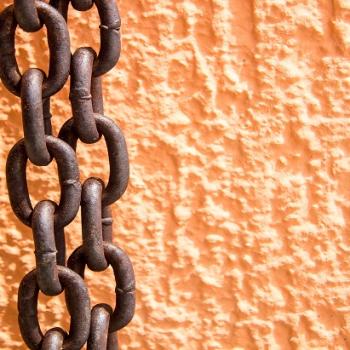Hell is probably Christianity’s biggest “elephant in the room”, something that nobody wants to talk about for obvious reasons. To fully understand God and His mercy, we need to reconcile the existence of Hell with His nature. And without cheap excuses that blindly follow any doctrine that spits on His Mercy.
What Is Hell?
Some doctrines genuinely aren’t worth defending. One of them is the notion that God ruthlessly flicks people off into Hell without a second thought, no matter what. I can only imagine that this has fueled the ongoing mass exodus of people deconstructing away from the church, and who can blame them?
I’m concerned that some testimonies we’ve heard about Hell (especially some of the YouTube videos I’ve stumbled upon) are based on fearmongering rather than education. Some of them came across as religious clickbait.
Terrifying people into faith isn’t faith; that’s far more reflective of tyranny. Christians must avoid depicting God as a merciless tyrant who thrives off of fear. He wants to be approachable, and these false depictions of His nature prevent people from trusting Him.
He’s not the Red Queen, folks! God isn’t a ruler who says that it’s “better to be feared than loved”.
We must also avoid dangerously asserting a generalizing knowledge of who we think will end up in Hell. God’s mercy is also for non-Christians; He will always listen if they call on Him.
The Lessons of Medjugorje
A few years ago, I studied the Marian apparitions in Medjugorje, Croatia, and how they better explained the nature of Hell. The Blessed Virgin Mary appeared to 6 children, and to 4 of them, she allowed them to objectively understand the nature of Hell.
I found this article on Medjugorje while writing that blog post, and I’m glad to be rereading it! Something that stood out to me when reading their testimonies was the description of a blonde girl who entered the inferno of Hell and walked out of the fire looking inhuman. It was like she’d become a demon.
Learning about the testimonies of the Medjugorje children helped me better understand the “unforgivable sin” that Jesus mentioned in the Gospels. In short, the “unforgivable sin” is what the children saw the inhabitants of Hell commit: permanently turning away from God and rejecting Him. As C.S. Lewis said, they choose to “lock the door from the inside”.
Enoch’s Visions
I highly recommend reading the apocryphal (non-canon) Books of Enoch. These writings give deeper context to the fallen angels, the Flood, and Hell.
Check out this passage from the 1st Book of Enoch:
“From thence I afterwards passed on to another terrific place;
Where I beheld the operation of a great fire blazing and glittering, in the midst of which there was a division. Columns of fire struggled together to the end of the abyss, and deep was their descent. But neither its measurement nor magnitude was I able to discover; neither could I perceive its origin. Then I exclaimed, ‘How terrible is this place, and how difficult to explore!’
Uriel, one of the holy angels who was with me, answered and said: ‘Enoch, why art thou alarmed and amazed at this terrific place, at the sight of this place of suffering?’ ‘This,’ he said, ‘is the prison of the angels; and here they are kept for ever’.
When I reread this, I remembered a disturbing dream/nightmare I had in the summer of 2015.
In this dream/nightmare, a horde of reptilian fiends surrounded me, vying to attack me as I warded them off with a burst of divine power God had given me. I was able to bind these things in chains and send them plummeting back to Hell.
That’s the moment I can never forget from this dream/nightmare. The only time I was able to banish these things, it was like my “dream camera” was locked into position. I couldn’t move or even wake up as I watched this chain-bound abomination fall into a massive lake of fire, seemingly endless. I can still see it in my head years later.
I’ve been rereading other parts of Enoch for this post, and I came across this part from a later chapter of 1 Enoch:
“And there my eyes beheld the instruments which they were making, fetters of iron without weight.
Then I inquired of the angel of peace, who proceeded with me, saying, ‘For whom are these fetters and instruments prepared?’
He replied, ‘These are prepared for the host of Azazeel, that they may be delivered over and adjudged to the lowest condemnation; and that their angels may be overwhelmed with hurled stones, as the Lord of’ spirits has commanded.'”
It unnerves me that I found references in Enoch for both the chains and lake of fire from that dream.
I believe that Hell, specifically the lake of fire, was created for the Devil and the fallen angels. It is a true tragedy that any of us would choose to cast our lot with Satan by repeating the prideful errors he made long ago.
Why Does Hell Still Exist?
Have you ever heard of the movie Dogma? It’s that goofy movie starring Alanis Morissette as God! While it’s more comical than anything, and while I still haven’t watched the whole film, there’s a deleted scene from it I found that might help us understand why Hell came to be.
Isn’t that a sobering notion, that Hell was originally supposed to be the prison for the fallen angels alone, only to be warped into a pit of suffering by self-righteous humans?
I found this highly informative and well-researched blog post from Flatland Apologetics explaining why Hell exists. The author objectively explains that God doesn’t will us to suffer in Hell. Instead, our chosen rebellious, self-righteous nature leads us to suffer there.
There’s a connection between what the author of this article wrote and the testimonies of the Medjugorje children. Both parties make it clear that God Himself doesn’t send anybody to Hell; it’s the will of those who freely reject Him and choose instead to dwell in everything contrary to His loving nature.
To the author of Flatland Apologetics, thank you for your work. You helped me come to peace with this rough topic. I greatly appreciate you striving to make it clear to all that God is not a sadist who gleefully stokes Hell’s fire despite what others might say. And thank you for quoting Ecclesiastes 3:11; I’m so happy that I read it!
“He has made everything beautiful in its time. Also, He has put eternity into man’s heart, yet so that he cannot find out what God has done from the beginning to the end.” (Ecclesiastes 3:11)
This is the truth that coincides with God being Love, and it’s why I get so disgusted by other Christians who actively claim the opposite.
Hell Isn’t Sadistic
Objectivity is essential, so I searched for Chrisitan articles that oppose the notion of “Universalism” (the idea that all will be saved no matter what, which is what gave The Shack [to the author’s chagrin] so much flack). I found this article from GotQuestions.org refuting Universalism while quoting Christian writer Thomas Aquinas. Aquinas asserted that while God’s will is for all to be saved, He also wills for some to be damned.
Egad, folks. “God wills for some to be damned”? Then what about these verses from the Book of Ezekiel?
- Ezekiel 18:23: “Do I take any pleasure in the death of the wicked? declares the Sovereign LORD. Rather, am I not pleased when they turn from their ways and live?”
- Ezekiel 18:32: “For I take no pleasure in the death of anyone, declares the Sovereign LORD. Repent and live!”
- Ezekiel 33:11: “Say to them, ‘As surely as I live, declares the Sovereign LORD, I take no pleasure in the death of the wicked, but rather that they turn from their ways and live. Turn! Turn from your evil ways! Why will you die, people of Israel?'”
God doesn’t wish for anybody to die, including a second (spiritual) death. May we not forget His wisdom in the Old Testament when handling this challenging topic.
We Christians need to understand that when we choose to purport the false belief that God “wills” anybody to end up in Hell (and going further to suggest that He “wants” them to be tortured for eternity), it paints a horrific picture of God in the eyes of others. This dangerous notion thus becomes the source of mockery by individuals such as Miss Betty Bowers, “America’s BEST Christian”, who created the satirical song “You’re Going Straight to Hell” in response.
(Feel free to look the song up on YouTube; on second thought, I decided not to directly include it here due to some potentially inappropriate moments in it.)
Miss Bowers points out (with her classic tongue-in-cheek wit) that there’s no point in Christians saying that God is loving while saying, in the same breath, that He wants to torture people for all eternity. She isn’t wrong, folks.
Saint Faustina’s Vision of Hell
One of my favorite saints is Saint Faustina Kowalska, known as the Secretary of Divine Mercy for her inspiring conversations with Jesus about the depths of His Mercy for humanity. St. Faustina also received alarming visions of Hell that bear mentioning here.
https://youtu.be/uzysRZDYgtI
Faustina understood through her visions, like the narrator in this video mentioned, that a significant number of the people she saw in Hell were individuals who denied Hell’s existence. In hindsight of what I’ve studied for this article, it sounds like St. Faustina realized that many people believe that they can somehow escape accountability for their wrongdoings.
How does this coincide with God’s love? As a result of my studies for this post, I’ve come to understand that God loves, yes, but also despises evil. Hell is the result of entities, both fallen angels and humans, worshipping/idolizing something evil over God. As a result, the fires in Hell likely result from God’s simultaneous love for His creation and retribution against evil.
I wanted more information on the nature of the fires in Hell, and I found out that the Orthodox view of Hell supports this notion.
Flames of Love?
Father Papageorgiou does a great job reminding his audience that in the story of the Rich Man and Lazarus, the Rich Man chose a life of selfishness and was held accountable for it. Refusing to have compassion or mercy for the vulnerable is something Jesus speaks on in the New Testament as characteristics of those who end up in Hell.
What stood out to me in his depiction of Hell is that while the people in Heaven rejoice over God, the people in Hell reject Him. It’s this perpetual rejection of God that causes (or at least, partly lends) to their suffering.
A Glance Through “The Great Divorce”
I highly recommend reading C.S. Lewis’ The Great Divorce. When I first tried to write this post a couple of days ago and felt stuck, I felt God nudging me to read this short story. I can see why. The Great Divorce is a fictitious analogy for why, even if people were able to leave Hell for Heaven, they stubbornly choose not to, instead choosing to dwell in their misery forever.
Misery loves company, indeed! Especially in my favorite scene from the book, captured spectacularly in this YouTube rendition:
(Content Warning: Narcissistic/Emotional Abuse)
This sweet woman’s husband creates a projected persona of wallowing self-pity to guilt-trip her into being miserable with him. But no matter how low he sinks, nothing he says can convince her to give up the joy and love she’s experiencing at God’s side. Sadly, all of her attempts to make him let go of his self-righteousness fail, and he ultimately returns to Hell in deep bitterness.
Unfortunately, God can’t make anybody choose Heaven. Doing so would violate their free will and would make people mere automatons. You could say that Hell first came to be because Satan and the fallen angels willfully tried to overthrow God out of pride. It’s truly disheartening that people, whether they mean to or not, follow in Satan’s footsteps by choosing selfishness over selflessness.
That is to say, following the Devil’s example of morality over Jesus’.
As it is, violating somebody’s free will defeats the purpose entirely. Even World of Warcraft has an analogy for why, no matter how good the intentions are, this violation is unacceptable:
Divine Mercy
It breaks Jesus’ Heart that so many feel unredeemable, feeling that they can’t ask for mercy because they fear their sins are too great. While it’s essential that we admit our wrongdoings to Him, it isn’t His will for us to avoid approaching Him out of fear that we can’t be saved. Through St. Faustina, Jesus continues to urge us all to trust in Him and His Mercy.
The morning of Christmas Eve, I had a dream of meeting Jesus exactly as how He’s depicted in the artwork of the Divine Mercy. He had the most gentle smile on His face as He telepathically spoke to me. Jesus urged me to not be afraid of approaching Him, ever. I still appreciate that, because I was disgusted with myself for the slanderous things I’d said in front of Him (Him alone, but still) against the people who’d wronged me last year.
Jesus wants us to acknowledge our wrongdoings and trust Him to be forgiven. His Mercy is for all, not just a select few. May we all take care to avoid religious authorities that speak like the Pharisees instead of Jesus when it comes to the matter of mercy.
Conclusion
God is love, and He also detests evil. I surmise (I don’t know the complete answer, and it would be arrogant of me to assert otherwise) that those who choose Hell suffer there because they’ve chosen to be inherently incompatible with His dual nature. Because God is loving, and the enemy of evil. When we choose to dwell in the same sins that Satan chose, such as pride, hatred, and mercilessness, we align ourselves as opposed to God.
Hell must break God’s Heart because, in the end, it was never His will for anybody to turn from Him and make hatred their dwelling.
Featured Image by Connor Brennan
Hello, and thank you for supporting my work here on Patheos! If you’d like to support me further, please feel free to “Buy Me A Coffee” here:
















